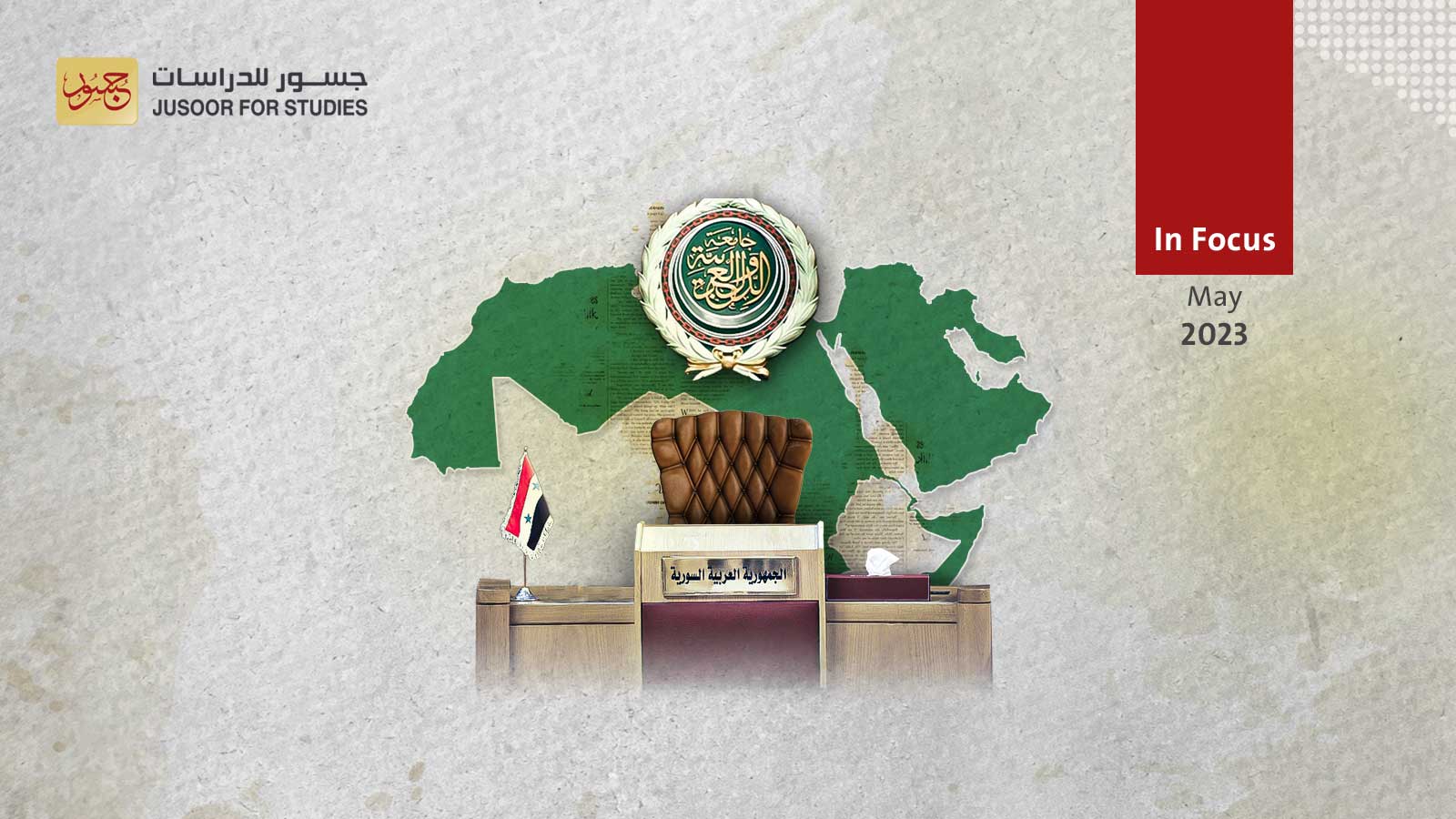Reinstating the Syrian Regime into the Arab League: Implications and Consequences
On May 7, 2023, the Arab League agreed to reinstate Syria, ending a 12-year suspension and taking another step toward bringing Syrian regime, a long-time regional pariah, back into the fold.
While the reason for suspending the regime's membership in the Arab League at the end of 2011 was its refusal to implement the Arab initiative for a solution, the decision to reinstate Syria's seat in 2023 was made without a specific initiative to comply with, except for dealing with the outputs of the Amman and Jeddah statements that the regime expressed readiness to implement.
Despite the absence of the Arab initiative, which indicates ongoing disagreements among some member states, there are conditions and commitments that apparently led the regime not to welcome the organization's decision. The former only issued a statement expressing interest in participating in meetings, without referring to any other items.
The decision to form a technical team of experts to follow up on the implementation of the Amman statement and provide periodic reports to the organisation indicates that the Arab path to engaging in a solution will begin by addressing security issues such as the threat of terrorism and drug trafficking, and humanitarian issues such as facilitating the delivery of humanitarian aid and the return of refugees. Making a step-by-step progress towards a comprehensive political solution in Syria is another issue on which reports should be delivered to the Arab League as well.
This indicates that the Arab League will cautiously engage with the regime, restricting any full economic and political openness unless the latter demonstrates genuine commitment to the required conditions and steps. However, it is expected that the regime will procrastinate in implementation and compliance, particularly in the absence of a clear action plan and a distinct initiative.
Nevertheless, Arab efforts remain contingent upon the nature of Arab relations with Iran, Russia, the United States, and Türkiye. For example, any improvement in the agreement reached between Riyadh and Tehran would serve as a catalyst for further progress in Arab engagement towards a solution in Syria. Similarly, the lifting of Western sanctions on the regime or granting any exemptions would be contingent upon Washington's conviction of the effectiveness of the steps taken towards modifying the regime’s behavior.
There are significant challenges that hinder Arab efforts for a solution in Syria, which limit any desire to influence the political process. Any attempt to reshape the Syrian opposition or align its positions within the Constitutional Committee with the policies of the regime requires broad international support, which is currently unavailable.
The most significant negative impact that could result from Arab efforts to intervene in the solution is the withdrawal of recognition of the Syrian National Coalition by the Arab League. However, this does not undermine the Coalition international legitimacy, as the United Nations General Assembly previously welcomed its establishment in Resolution 67/262 (2013) as the legitimate representative of the Syrian people.
Moreover, the Syrian Negotiations Commission, is not directly affected by the new Arab decision, as its legitimacy is derived from UN Security Council Resolution 2254 (2015), which is based on the Geneva Communique (2012) and the Vienna Statements (2015), rather than Arab League resolutions. Similarly, the Constitutional Committee derives its legitimacy from the recognition by the Security Council in its Chairman's Statement on October 8, 2019.
Undoubtedly, this decision represents a serious Arab retreat from the position taken at the end of 2011 in response to the grave violations taking place in Syria. It serves the interests of the perpetrators of these violations and enhances the likelihood of similar violations being committed in other countries.
Indeed, the actual effects of this decision appear to be limited at the current stage and its impact is restricted to the diplomatic and media level without actual repercussions on the economic situation and subsequently on the reconstruction efforts, which are the actual gains that the regime is looking for. Also, the conditional return, whether it is formal or actual, weakens the impact of the decision, even from a media perspective for the regime, which justifies its lack of welcome to the decision.








